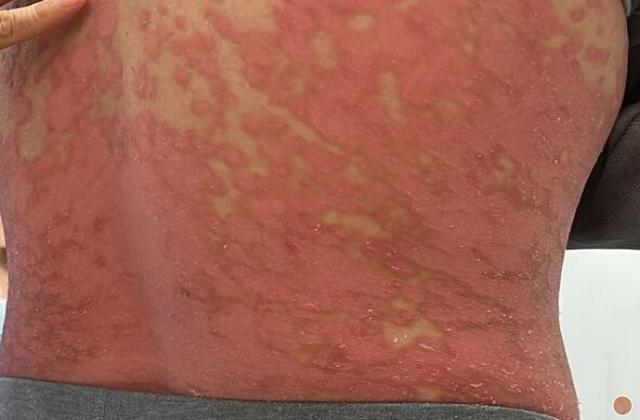当前位置:首页 > 知识 > 银屑病会引起scc升高吗
内容介绍:银屑病是一种常见的自身免疫疾病,主要表现为皮肤出现红、斑块状皮疹和白色鳞片,同时可能伴随有关节炎、爪周炎等症状。银屑病对心理和社交功能的影响较大,很多患者会感到痛苦和

银屑病是一种常见的自身免疫疾病,主要表现为皮肤出现红、斑块状皮疹和白色鳞片,同时可能伴随有关节炎、爪周炎等症状。银屑病对心理和社交功能的影响较大,很多患者会感到痛苦和不适。在治疗银屑病的过程中,通常需要考虑多种因素,包括对症治疗、免疫抑制剂、光疗、生物制剂等。

Squamous cell carcinoma (SCC), or squamous cell cancer, is a type of skin cancer that arises from the squamous cells in the skin. It is the second most common type of skin cancer, and usually appears as a thick, scaly patch or bump on the skin. SCC can be caused by many factors, including UV radiation exposure, chronic wounds, certain viruses, and genetic predisposition. In general, the risk of SCC increases with age and sun exposure.
The relationship between psoriasis and SCC is not entirely clear. Some studies have suggested that psoriasis may increase the risk of SCC, due to chronic skin inflammation, impaired immune function, or the use of certain therapies (such as PUVA or methotrexate). However, other studies have found no significant association between psoriasis and SCC, or have even suggested a decreased risk of SCC in psoriatic patients. Therefore, the relationship between psoriasis and SCC is complex and may depend on many factors, such as disease severity, treatment history, and personal risk factors.
In summary, while psoriasis may have some impact on the risk of SCC, this relationship is not well established and requires further study. If you are concerned about skin cancer or have a history of SCC, it is important to discuss your concerns with a dermatologist or other healthcare provider, who can perform a thorough examination and provide personalized advice and treatment. In general, regular skin exams, sun protection, and healthy lifestyle choices (such as avoiding tobacco and maintaining a healthy diet) can help reduce the risk of skin cancer and other health problems.




